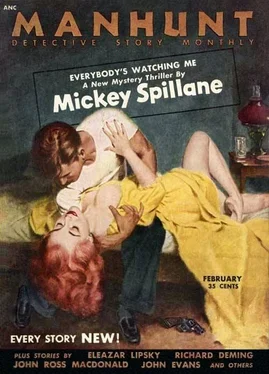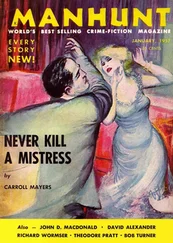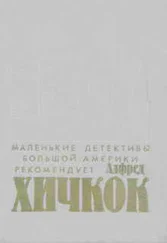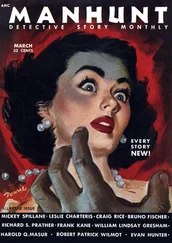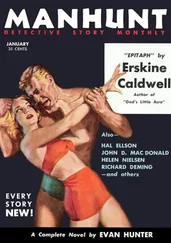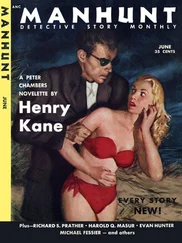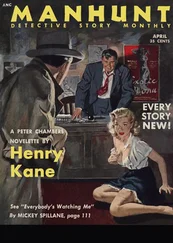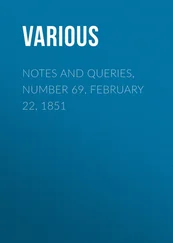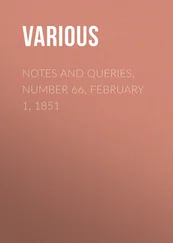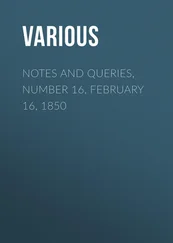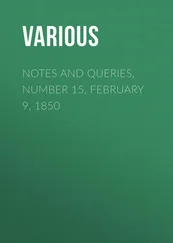Ричард Деминг - Manhunt. Volume 1, Number 2, February, 1953
Здесь есть возможность читать онлайн «Ричард Деминг - Manhunt. Volume 1, Number 2, February, 1953» весь текст электронной книги совершенно бесплатно (целиком полную версию без сокращений). В некоторых случаях можно слушать аудио, скачать через торрент в формате fb2 и присутствует краткое содержание. Город: New York, Год выпуска: 1953, Издательство: Flying Eagle Publications, Жанр: Детектив, на английском языке. Описание произведения, (предисловие) а так же отзывы посетителей доступны на портале библиотеки ЛибКат.
- Название:Manhunt. Volume 1, Number 2, February, 1953
- Автор:
- Издательство:Flying Eagle Publications
- Жанр:
- Год:1953
- Город:New York
- ISBN:нет данных
- Рейтинг книги:4 / 5. Голосов: 1
-
Избранное:Добавить в избранное
- Отзывы:
-
Ваша оценка:
- 80
- 1
- 2
- 3
- 4
- 5
Manhunt. Volume 1, Number 2, February, 1953: краткое содержание, описание и аннотация
Предлагаем к чтению аннотацию, описание, краткое содержание или предисловие (зависит от того, что написал сам автор книги «Manhunt. Volume 1, Number 2, February, 1953»). Если вы не нашли необходимую информацию о книге — напишите в комментариях, мы постараемся отыскать её.
Manhunt. Volume 1, Number 2, February, 1953 — читать онлайн бесплатно полную книгу (весь текст) целиком
Ниже представлен текст книги, разбитый по страницам. Система сохранения места последней прочитанной страницы, позволяет с удобством читать онлайн бесплатно книгу «Manhunt. Volume 1, Number 2, February, 1953», без необходимости каждый раз заново искать на чём Вы остановились. Поставьте закладку, и сможете в любой момент перейти на страницу, на которой закончили чтение.
Интервал:
Закладка:
Thoughts about a man who might still be alive if I hadn’t slept an hour later than usual. A man with mismatched clothing and no socks and an empty wallet. A man who would want to go on living, even in an age when living was complicated and not very rewarding. A man who had managed for fifty-odd years to hang on to the only life he’d ever be given to five before a switchblade knife and a strong hand combined to pinch it off.
I went on sitting. The rain went on falling. It was so dark for April.
After a while the corridor door opened to let in two men in white coats. They carried a long wicker basket between them. They passed my door without looking in. There was more indistinct murmuring, then a young voice said, “Easy with them legs, Eddie,” and the basket was taken out again. It was harder to carry the second time.
Sergeant Lund walked in, his face expressionless. He sat down heavily and lighted a cigarette and waved out the match and continued to hold it. He said, “Andrus died between eight-thirty and ten. The elevator man don’t recall bringing him up. What time did you get here?”
“Ten-thirty, about. Few minutes either way.”
“You wouldn’t happen to own a switch-blade knife, hey?”
“With a brown bone handle?” I said.
He bent the used match and dropped it in the general vicinity of the ashtray. “Seven-inch blade,” he muttered. “Like a goddam bayonet.” He put the cigarette in a corner of his mouth and left it there. “This is a real cute killing, Pine. You notice how Andrus was dressed?”
“No socks,” I said.
“That isn’t the half of it, brother. New coat, old pants, fancy shoes. No hat and no topcoat. In weather like this? What’s the sense?”
I spread my hands. “By me, Sergeant.”
“You sure you wasn’t work—”
“Don’t say it!” I shouted.
The phone rang. A voice like a buzz-saw asked for Lund. He grunted into the mouthpiece, listened stolidly for nearly a full minute, then said, “Yeah,” twice and passed back the receiver. I replaced it and watched him drag himself out of the chair, his expression a study in angry frustration.
“I had Rogers Park send a squad over to that Winthrop Avenue address,” he growled. “Not only they don’t find no trace of a Franklin Andrus; they don’t even find the address! An empty lot, by God! All right. Hell with it. The lab boys will turn up something. Laundry marks, cuff dust, clothing labels. It’ll take ’em a day or two, but I can wait. The old routine takes time but it always works.”
“Almost always,” I said absently.
He glowered down across the desk at me. “One thing I hope, mister. I hope you been holding out on me and I find it out. That’s going to be jake with me.”
He gathered up the dead man’s possessions and stalked out. A little later one of the plainclothes men slipped in with his kit and took my fingerprints. He was nice about it, explaining they were only for elimination purposes.
III
By one o’clock I was back from having a sandwich and coffee at the corner drugstore. The reception room was empty, with only a couple of used flash bulbs, some smudges of fingerprint powder here and there and the smell of cheap cigars and damp cloth to remind me of my morning visitors. Without the dead man on it, the couch seemed larger than usual. There were no bloodstains. I looked to make sure.
I walked slowly into the other room and shucked off my trench coat. From the adjoining office came the faint whine of a dentist’s drill. A damp breeze crawled in at the window and rattled the cords on the blind. Cars hooted in the street below. Sounds that made the silence around me even more silent. And the rain went on and on.
I sat down behind the desk and emptied the ashtray into the wastebasket and wiped off the glass top. I put away the cloth and got out a cigarette and sat there turning it, unlighted, between a thumb and forefinger.
He had been a nice-looking man. Fifty-five at the most. A man with a problem on his mind. Let’s say he wakes up this morning and decides to take his problem to a private detective. So he gets out the classified book and looks under the right heading. There aren’t many, not even for a town the size of Chicago. The big agencies he passes up, maybe because he figures he’ll have to go through a handful of henna-haired secretaries before reaching the right guy. Then, not too far down the column, he comes across the name Paul Pine. A nice short name. Anybody can pronounce it.
So he takes a cab or a bus and comes on down. He hasn’t driven a car; no car keys and no license on him. The waiting room is unlocked but no alert gimlet-eyed private detective around. The detective is home in bed, like a man with a working wife. So this nice-looking man with a problem sits down to wait... and somebody walks in and sticks a quarter-pound of steel in him.
That was it. That explained everything. Everything but what his problem was and why he wasn’t wearing socks and why his wallet was empty and why his identification showed an address that didn’t exist.
I got up and took a couple of turns around the room. This was no skin off my shins. The boys from Homicide would have it all wrapped up in a day or so. The old routine Lund had called it. I didn’t owe that nice old man a thing. He hadn’t paid me a dime. No connection between us at all.
Except that he had come to me for help and got a mouthful of blood instead.
I sat down again and tried the phone book. No Franklin Andrus listed. No local branch of the Reliable Amusement Machine Corp. I shoved the book away and began to think about the articles that had come out of the dead man’s pockets. Gold tweezers, a pocket comb, five small transparent envelopes, seventy-three cents in change, a dark blue necktie. There had been a department store label on the tie — Marshall Field. I knew that because I had looked while Lund was out of the room. But Field’s has more neckties than Pabst has bottles. No help there.
Is that all, Pine, I thought to myself. End of the line? You mean you’re licked? A nice, clean-necked, broad-shouldered, late-sleeping detective like you?
I walked the floor some more. I went over to the window and leaned my forehead against its coolness. My breath misted the glass and I wrote my name in the mist with the end of my finger. That didn’t seem to help any. I went on thinking.
Maybe what hadn’t come out of his pockets was important. No keys, for instance. Not even to his apartment. Maybe he lived in a hotel. Not even cigarettes or a book of matches. Maybe he didn’t smoke. Not even a handkerchief. Maybe he didn’t have a cold.
I sat down again. There had been initals in his coat. A C G. No periods and stitched professionally in fancy letters against a square of black satin. Rather large, as I recalled. Too bad I hadn’t looked inside the pocket for the tailor’s label. Unless...
This time I used the classified book. T — for Tailors — Men’s. I ran through the columns to the G’s. There it was, bright and shining and filled with promise. A. Cullinham Grandfils, Custom Tailor. On Michigan Avenue, in the 600 block. Right in the center of the town’s swankiest shopping district.
I closed the window, climbed into my trench coat and hat and locked up. The smell of dime cigars still hung heavy in the outer office. Even the hall seemed full of it.
IV
It was made to look like a Greek temple, if you didn’t look too close. It had a white limestone front and a narrow doorway with a circular hunk of stained glass above that. Off to one side was a single display window about the size of a visiting card. Behind the glass was a slanting pedestal covered with black velvet and on the velvet a small square of gray cloth that looked as though it might be of cheviot. Nothing else. No price tags, no suits, no firm name spelled out in severely stylized letters.
Читать дальшеИнтервал:
Закладка:
Похожие книги на «Manhunt. Volume 1, Number 2, February, 1953»
Представляем Вашему вниманию похожие книги на «Manhunt. Volume 1, Number 2, February, 1953» списком для выбора. Мы отобрали схожую по названию и смыслу литературу в надежде предоставить читателям больше вариантов отыскать новые, интересные, ещё непрочитанные произведения.
Обсуждение, отзывы о книге «Manhunt. Volume 1, Number 2, February, 1953» и просто собственные мнения читателей. Оставьте ваши комментарии, напишите, что Вы думаете о произведении, его смысле или главных героях. Укажите что конкретно понравилось, а что нет, и почему Вы так считаете.
